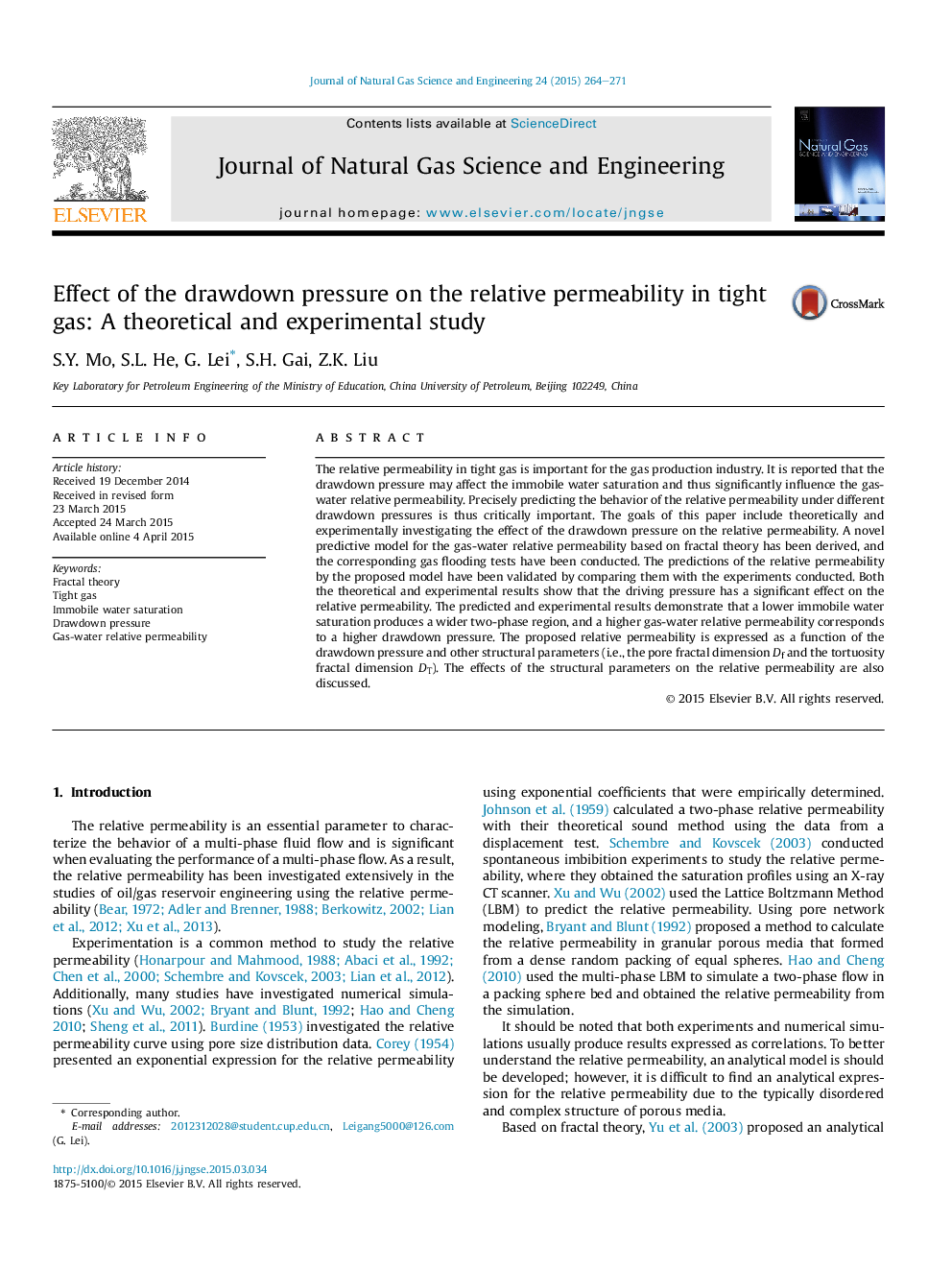| Article ID | Journal | Published Year | Pages | File Type |
|---|---|---|---|---|
| 1757417 | Journal of Natural Gas Science and Engineering | 2015 | 8 Pages |
•We proposed a novel theoretical model to describe the gas-water relative permeability based on fractal theory.•The proposed fractal model considers the immobile water saturation.•The proposed fractal model could reveal the mechanisms of the drawdown pressure that affects the relative permeability.•The predicted relative permeability is found to be in good agreement with the experimental data.
The relative permeability in tight gas is important for the gas production industry. It is reported that the drawdown pressure may affect the immobile water saturation and thus significantly influence the gas-water relative permeability. Precisely predicting the behavior of the relative permeability under different drawdown pressures is thus critically important. The goals of this paper include theoretically and experimentally investigating the effect of the drawdown pressure on the relative permeability. A novel predictive model for the gas-water relative permeability based on fractal theory has been derived, and the corresponding gas flooding tests have been conducted. The predictions of the relative permeability by the proposed model have been validated by comparing them with the experiments conducted. Both the theoretical and experimental results show that the driving pressure has a significant effect on the relative permeability. The predicted and experimental results demonstrate that a lower immobile water saturation produces a wider two-phase region, and a higher gas-water relative permeability corresponds to a higher drawdown pressure. The proposed relative permeability is expressed as a function of the drawdown pressure and other structural parameters (i.e., the pore fractal dimension Df and the tortuosity fractal dimension DT). The effects of the structural parameters on the relative permeability are also discussed.
